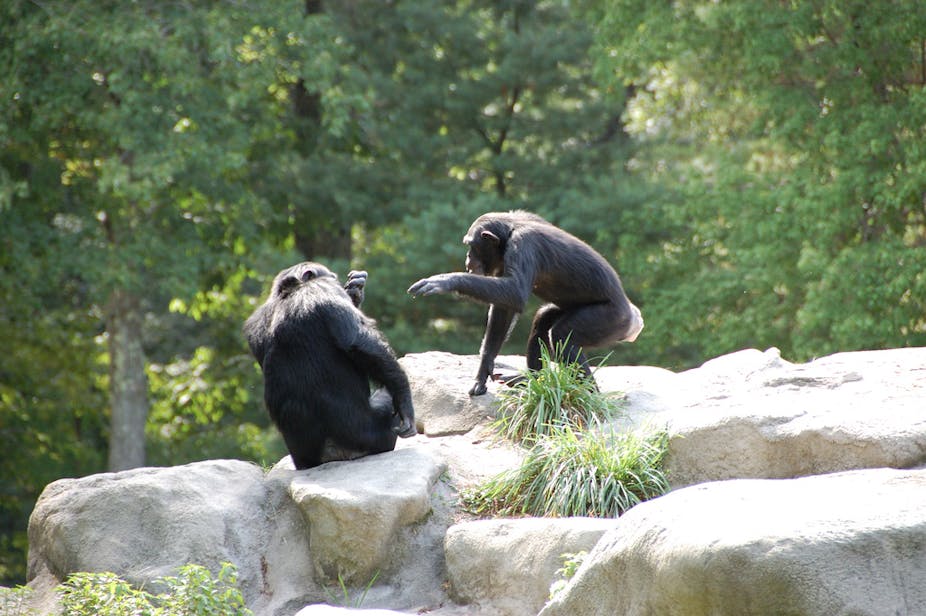Chimpanzees are able to understand the objectives of their companions, but will only help them when asked to do so, a study into the cognitive behaviour of the primates has found.
Some studies have shown that chimpanzees are unlikely to help their mates in the wild, possibly because they do not understand their motivations - but the latest research undermines that theory.
A team of researchers from Kyoto University in Japan created an experiment in which a chimpanzee was required to select and transfer an appropriate tool to another chimpanzee so that he or she could solve a task to obtain a juice reward.
The helper had to select the tool from an array of seven objects to help his or her partner accomplish the task.
“When helpers could visually assess their partner’s predicament, they selected out of seven objects an appropriate tool to transfer to their partner so he or she could obtain a reward,” the team, lead by primatologist Shinya Yamamoto, explained in the most recent edition of the journal Proceedings of the National Academy of Sciences.
The ability to perceive the goal of another individual based on behaviour is one aspect of “theory of mind” - the capacity for attributing mental states to others, and understanding that others have mental states different from one’s own.
Scientists are still divided over whether chimpanzees have this. Some suggest they only show an ability to comprehend the aims of their companions in competitive situations.
In the latest experiment, however, the subjects displayed a “kind of targeted helping [that] is cognitively advanced; it is clearly neither a programmed behavior nor an automatic stimulus response,” the authors wrote.
“Even without shared intentionality and sophisticated communicative skills, such as language or pointing, chimpanzees can understand others’ goals when situations are visibly obvious and understandable.”
In situations where they were visually prevented from understanding their partner’s needs, the chimpanzees persisted in helping them on request, although their tool choice often failed to correspond to their needs.
Equally, the authors wrote, “even when chimpanzees understand the needs of others, they seldom help others unless directly requested.”
The behaviour was similar to that of 18-month-old infants, who require “considerable communication from the adult about his or her needs. Meanwhile, 30-mo-old infants helped an adult more spontaneously, possibly due to their acquired empathic abilities.”
Colin Groves, a professor of bioanthropology at the Australian National University’s School of Archaeology and Anthropology, noted that the chimpanzees who helped each other were relatives: “This new research therefore … shows that kinship is involved.”

